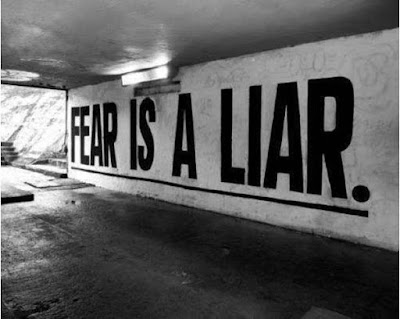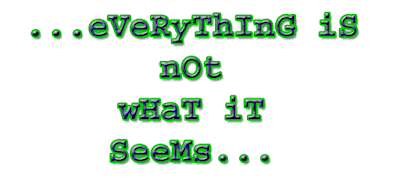Suburban kids & Fear of Failure
fear
ˈfir/
noun
noun: fear; plural noun: fears
1.an unpleasant emotion caused by the belief that someone or something is dangerous,
likely to cause pain, or a threat.
I used to live in fear. I was scared to speak up, scared to share what I had learned about the planned destruction of public education, scared to say what no one I knew was saying out loud. I couldn't believe that although we all knew better, we were being forced by our government to standardize our schools, change our teaching, focus on high stakes standardized testing, and pretend that these changes were good for children. It was when I decided to no longer be afraid that I started this blog.
Fellow blogger and PA teacher, Peter Greene, writes here about the fear facing students in today's educational culture. And he says parents are feeling it, too. I agree. I think that we are unaware of the new normal of living with fear for our kid's futures.
Greene reports on the elite Silicon Valley communities with student suicide rates four or five times the national average. He asks, "If students from wealthy families in one of the most affluent
communities in the country are feeling driven to these sort of
extremes-- what the heck can that mean.
And it's not just the issue of suicide. Rosin writes:
The rich middle- and high-school kids [Arizona State professor Suniya] Luthar and her collaborators have studied show higher rates of alcohol and drug abuse on average than poor kids, and much higher rates than the national norm. They report clinically significant depression or anxiety or delinquent behaviors at a rate two to three times the national average. Starting in seventh grade, the rich cohort includes just as many kids who display troubling levels of delinquency as the poor cohort, although the rule-breaking takes different forms. The poor kids, for example, fight and carry weapons more frequently, which Luthar explains as possibly self-protective. The rich kids, meanwhile, report higher levels of lying, cheating, and theft."
And it's not just the issue of suicide. Rosin writes:
The rich middle- and high-school kids [Arizona State professor Suniya] Luthar and her collaborators have studied show higher rates of alcohol and drug abuse on average than poor kids, and much higher rates than the national norm. They report clinically significant depression or anxiety or delinquent behaviors at a rate two to three times the national average. Starting in seventh grade, the rich cohort includes just as many kids who display troubling levels of delinquency as the poor cohort, although the rule-breaking takes different forms. The poor kids, for example, fight and carry weapons more frequently, which Luthar explains as possibly self-protective. The rich kids, meanwhile, report higher levels of lying, cheating, and theft."
I live in an affluent, suburban area and my kids are in middle and high school. I see the truth in these words. Why the pressure? Why the depression? Why the cheating? The lying? The drug and alcohol use?
Our government has marketed the idea of education as a Race to the Top. Races have clear winners and losers. In authentic education, everyone can be a winner. As parents, teachers, school leaders, school boards, and others swallowed this bitter pill, the race mentality trickled down to our kids.
 |
| If you have not seen this film, make sure you do.... with your whole family. |
"In the U.S., adolescents represent the only age group where the
mortality rate continues to increase. Combined, the top three causes of
death — accidents, suicide and homicide — account for 75% of adolescent
deaths."
When we feel fear we cannot and do not make our best choices.
Living in constant fear "... weakens our immune system and can cause cardiovascular
damage, gastrointestinal problems such as ulcers and irritable bowel syndrome
and decreased fertility. Fear can impair formation of long-term memories and
cause damage to certain parts of the brain, such as the hippocampus. This can
make it even more difficult to regulate fear and can leave a person anxious
most of the time. To someone in chronic fear, the world looks scary and their
memories confirm that. Moreover, fear can interrupt processes in our brains
that allow us to regulate emotions, read non-verbal cues and other information
presented to us, reflect before acting, and act ethically. This impacts our
thinking and decision-making in negative ways, leaving us susceptible to
intense emotions and impulsive reactions. All of these effects can leave us
unable to act appropriately. Other consequences of long-term fear include
fatigue, clinical depression accelerated aging, and even premature death. So
whether threats to our security are real or perceived, they impact our mental
and physical well-being."
The time has come for the conversations to return to each individual, local community (Those of us who still have locally elected school boards should be extra thankful). We must speak up and insist that we end the culture of fear. Do not try to change my children's mindsets or instill more grit. Do not make them feel like their standardized tests scores define them. Do not send a conscious or unconscious message to them that their future depends on filling in correct bubbles or passing sections on robotic adaptive technology.
Schools must set their teachers free of the testing shackles and encourage them to bring back creativity, passion for learning, learning for pleasure, teaching kids that intrinsic motivation feels good, that reading books is fun, and that math can make sense. We must return the importance of science, social studies, art, music, physical education, health, cooking, sewing, industrial arts, and recess k - 8. High school students need to take electives that interest them and stop the obsession with doing what they think will make their college applications look better.
How can we help our kids? We can stop the toxic environment of living in fear. Consider opting out in 2016. Parents, not the government, know what is best for our children.




This comment has been removed by a blog administrator.
ReplyDelete